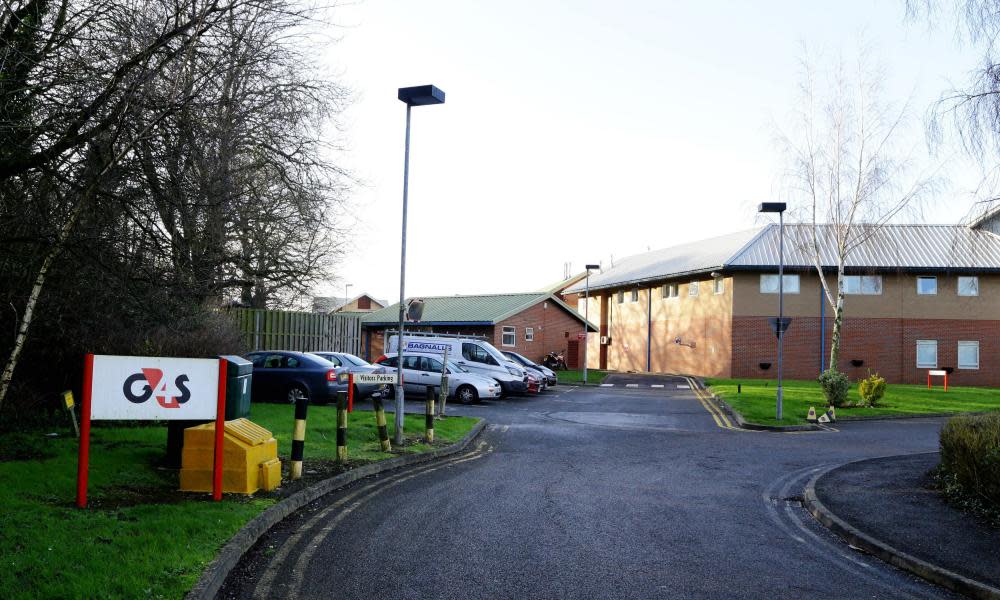Monitoring of abuse claims at children's prison 'ineffective'

A review into the alleged abuse of children by staff at a children’s prison has found that a series of failings led to an “erratic and ineffective” monitoring of investigations into the claims.
The serious case review criticises a contract between the Youth Justice Board (YJB) and Barnardo’s, which was acting as an independent advocate for the children, that “expressly did not allow” the charity to refer concerns about child protection to the local authority responsible for their welfare.
The review into Medway secure training centre was undertaken in 2016 after an undercover Panorama documentary alleged staff at the centre, then run by the security firm G4S, appeared to be mistreating and abusing inmates, and boasting about using inappropriate techniques to restrain children. Other allegations included staff trying to hide their actions by ensuring they were in areas not covered by CCTV cameras.
A subsequent investigation by the Guardian revealed a history of abuse allegations at the centre in Rochester, Kent, and that a letter sent by two whistleblowers 12 years earlier to the YJB, G4S, the Social Services Inspectorate and a Home Office minister had been ignored. G4S was stripped of its contract to run Medway STC the day the Guardian published its exposé.
Now the serious case review, published by Medway Safeguarding Children Board, has highlighted the toothlessness of the children’s charity commissioned by the YJB in 2013 to deliver advocacy services across the young people’s secure estate of England and Wales. As advocates, Barnardo’s responsibility was to debrief inmates after they had been restrained and ensure they had not been abused.
But the review revealed that Barnardo’s did not even have an office in Medway, that when Barnardo’s advocates did escalate safeguarding concerns Medway had no requirement to update them on the outcome, and that it had no right to independently contact the local authority designated officer (Lado) responsible for responding to allegations made by children against members of staff.
The review concluded: “The contract between the YJB and Barnardo’s was a barrier to independent scrutiny.” It was only in 2017 that the contract was changed to allow Barnardo’s to contact the Lado directly if it had concerns about a member of staff. The contract was also changed so that Barnardo’s staff do not have to be physically present to offer advocacy if a young person has previously been restrained in Medway STC.
The review also revealed:
Before 2016 staff had picked on vulnerable children. “This included children who did not speak English or were comparatively young or withdrawn or had no extremal family support.”
Ninety children were taken to A&E from Medway STC during the three-year period under review.
The reporting of alleged crimes by members of staff against children at Medway STC was described as “stymied”.
After the Panorama programme, 16 members of staff were arrested, nine were charged but none were convicted.
Many children did not pursue allegations of abuse by members of staff because they had no faith in the investigating agencies.
G4S did not hand over locally stored staff records and local supervision records when Her Majesty’s Prison and Probation Service took over the management of the centre.
The local authority designated officer, responsible for monitoring and overseeing investigations against staff working with children, was “erratic and ineffective”, focusing on proving whether allegations could be substantiated rather than the potential risk of staff members to children.
Medway Safeguarding Children Board’s failure to analyse allegations was “a missed opportunity for challenge”.
The YJB’s focus on contract compliance did not “enable judgments to be focused primarily on children’s safety”.
Carolyne Willow, whose charity, Article 39, fights for the rights of children in institutional settings, said: “This review confirms what millions of us watched on the BBC Panorama programme: that G4S failed to protect children. The new revelation is that the local systems for protecting children in this institution were utterly ineffective.”
A spokesperson for Barnardo’s said: “The safety and wellbeing of all children is of paramount importance to Barnardo’s. We welcome the recommendations made by the serious case review and will continue to work closely with the Ministry of Justice, Youth Custody Service, Youth Justice Board and stakeholders to ensure all children can access our independent [advocacy] service.”
A spokesperson for the YJB said: “The Youth Justice Board has made significant changes since January 2016. Following a transfer of operational and commissioning responsibility to the Youth Custody Service and Ministry of Justice, the Youth Justice Board is now able to focus on its statutory duty – monitoring and improving the youth justice system as a whole. The Youth Justice Board now actively promotes a ‘child first’ approach within the youth justice sector, demanding that all those under 18 are treated as children.”
Jerry Petherick, the managing director of G4S custodial and detention services, said: “The behaviour of some of our staff at Medway in 2016 was completely unacceptable, and in stark contrast to our training and values. The wellbeing of those in our care is of the highest priority.”

 Yahoo News
Yahoo News 